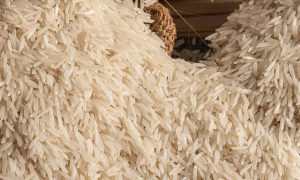Bangladesh Govt imports record 12.96 lakh tonnes of food grains in FY25 amid domestic shortfall

Bangladesh imported a record 12.96 lakh tonnes of food grains in FY2024–25—8.3 lakh tonnes of rice and 4.66 lakh tonnes of wheat—to offset crop losses from repeated floods. Despite this, rice prices rose. Government grain distribution hit a record 32.43 lakh tonnes, easing food inflation from 14.1% to 8.26%. Imports are expected to decline in FY2025–26 barring major disasters.
The government imported a record 12.96 lakh tonnes of food grains in the just concluded 2024–25 fiscal year to stabilise domestic supply amid repeated natural disasters and lower rice production.
According to the food ministry’s website, the imports included 8.30 lakh tonnes of rice and 4.66 lakh tonnes of wheat. In contrast, the previous fiscal saw no rice imports and 7.84 lakh tonnes of wheat imported through public channels.
Officials said the bulk import was necessary to tackle a decline in domestic production caused by four rounds of floods, which hit major rice-growing regions like Chattogram, Sylhet and Mymensingh. Despite the massive import volume, retail prices of coarse rice continued to rise.
On 1 July, the Trading Corporation of Bangladesh (TCB) reported that coarse rice was selling at Tk55–60 per kg in Dhaka, up from Tk48–52 a year earlier.
The food ministry said around 6.2 crore people benefited directly from government grain distribution schemes.
Food Secretary Md Masudul Hasan a portion of the imports finalised in FY24 was executed in the following fiscal year, inflating the FY25 totals.
“We imported rice under 12 open tender packages totalling 6 lakh tonnes, and another 2.5 lakh tonnes under G2G agreements. Wheat imports stood at 2 lakh tonnes,” he told The Business Standard.
He added that FY25 saw the largest ever food grain supply by the government in a single fiscal – around 32.43 lakh tonnes – through the Food Directorate and TCB.
The distribution slightly exceeded the 32.19 lakh tonnes supplied in the previous year.
As of 30 June, government stockpiles stood at 17.67 lakh tonnes – 2.71 lakh tonnes higher than the same time last year.
Food inflation, which stood at 14.10% at the beginning of FY25, fell to 8.26% by year-end, driven by increased public food supply.
The ministry also reported that while private sector rice imports remained limited, private traders brought in 4.69 lakh tonnes during the fiscal year.
Most of the publicly imported rice came from Myanmar, Pakistan, and Vietnam through G2G channels, with the rest procured via open tender.
A food ministry report noted that on 26 June, the price of coarse rice in local markets was Tk54 per kg, while the same grade of rice was priced at Tk46.41 per kg internationally, reflecting continued pressure on domestic consumers.
The government initially targeted 10 lakh tonnes in food grain imports for FY25, later revising the goal down to 7 lakh tonnes to control inflation and rebuild reserves.
Despite these adjustments, actual imports surpassed the target due to disaster-driven demand.
A USDA report released in December 2024 said Bangladesh lost crops on nearly 3 lakh hectares of land in back-to-back floods between August and October.
Food Secretary Hasan said imports are expected to fall in FY26, barring any major natural disasters. The Food Planning and Monitoring Committee will meet on 15 July to finalise the new fiscal year’s import target.
In recent years, food grain imports totalled 6.33 lakh tonnes in FY23, 6.83 lakh tonnes in FY22, and 5.72 lakh tonnes in FY21.
To Read more about Rice News continue reading Agriinsite.com
Source : The Business Standard

















